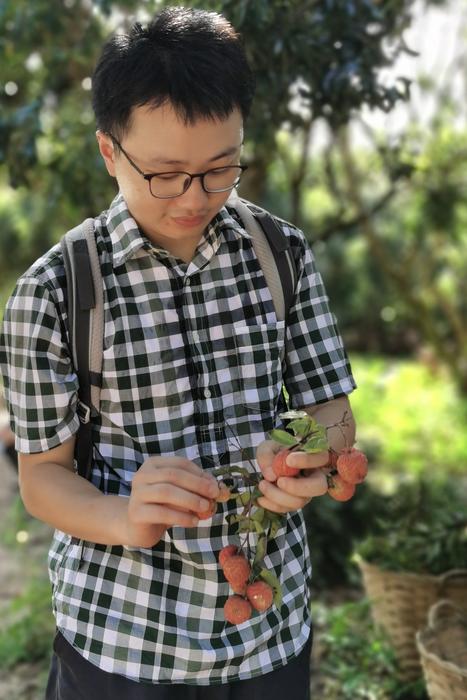Farmland birds have a positive impact on woody crops but are more likely to negatively impact the yield of herbaceous crops, according to a study publishing July 6th in the open access journal PLOS Biology by Cheng Huang from Sun Yat-sen University in China and colleagues. Furthermore, non-lethal measures to deter birds are effective in reducing crop losses, the researchers report.

Credit: Bingru Li (CC-BY 4.0, https://creativecommons.org/licenses/by/4.0/)
Farmland birds have a positive impact on woody crops but are more likely to negatively impact the yield of herbaceous crops, according to a study publishing July 6th in the open access journal PLOS Biology by Cheng Huang from Sun Yat-sen University in China and colleagues. Furthermore, non-lethal measures to deter birds are effective in reducing crop losses, the researchers report.
Wild birds provide useful services to farmers, such as consuming insect pests and pollinating plants, but can also cause crop damage. Farmers often try to discourage birds by scaring them away, or by poisoning or shooting birds. Researchers analyzed published data on bird diets, experimental tests of the impact of birds on crop production and the effectiveness of mitigation measures, and surveys of public perceptions.
They found that around 10% of bird species consume crops. Among 40 studies on 19 crops, 65% showed a positive effect of birds on woody crop yield but only 18% found a positive effect on herbaceous crops. Non-lethal bird deterrents, such as scaring devices and changing sowing practices, were effective in reducing crop losses. Reviewing 39 independent surveys of public perception across 24 countries, they found that 67% of respondents had a positive attitude towards birds. Additionally, respondents from low-income countries are more likely to perceive the disservice and are less positive toward birds than those from high-income ones. Based on the global distribution of birds and the cultivation of woody and herbaceous crops, the authors identified priority areas for promoting human-bird coexistence in India, Southeast Asia, sub-Saharan Africa, and the Amazon.
The results suggest that win-win scenarios are possible for bird conservation and farm productivity. Active communication of the benefits of birds to crops and the effectiveness of non-lethal deterrents by the conservation and agriculture sectors could help promote peaceful co-existence of birds and farmers, the authors say.
Huang adds, “This study synthesizes multiple global datasets and shows that birds can benefit woody crops and their disservice to herbaceous crops can be reduced by nonlethal measures.”
#####
In your coverage, please use this URL to provide access to the freely available paper in PLOS Biology: http://journals.plos.org/plosbiology/article?id=10.1371/journal.pbio.3002166
Citation: Huang C, Zhou K, Huang Y, Fan P, Liu Y, Lee TM (2023) Insights into the coexistence of birds and humans in cropland through meta-analyses of bird exclosure studies, crop loss mitigation experiments, and social surveys. PLoS Biol 21(7): e3002166. https://doi.org/10.1371/journal.pbio.3002166
Author Countries: China
Funding: This study was funded by the State Key Laboratory of Genetic Resources and Evolution (GREKF20-03 to CH), National High-level Talent Program of China (41180953 to TML), and the DFGP Project of Fauna of Guangdong-202115 from Science and Technology Planning Projects of Guangdong Province (2021B121210002 to YL). The funders had no role in study design, data collection and analysis, decision to publish, or preparation of the manuscript.
Journal
PLoS Biology
DOI
10.1371/journal.pbio.3002166
Method of Research
Meta-analysis
Subject of Research
Animals
COI Statement
Competing interests: The authors have declared that no competing interests exist.




